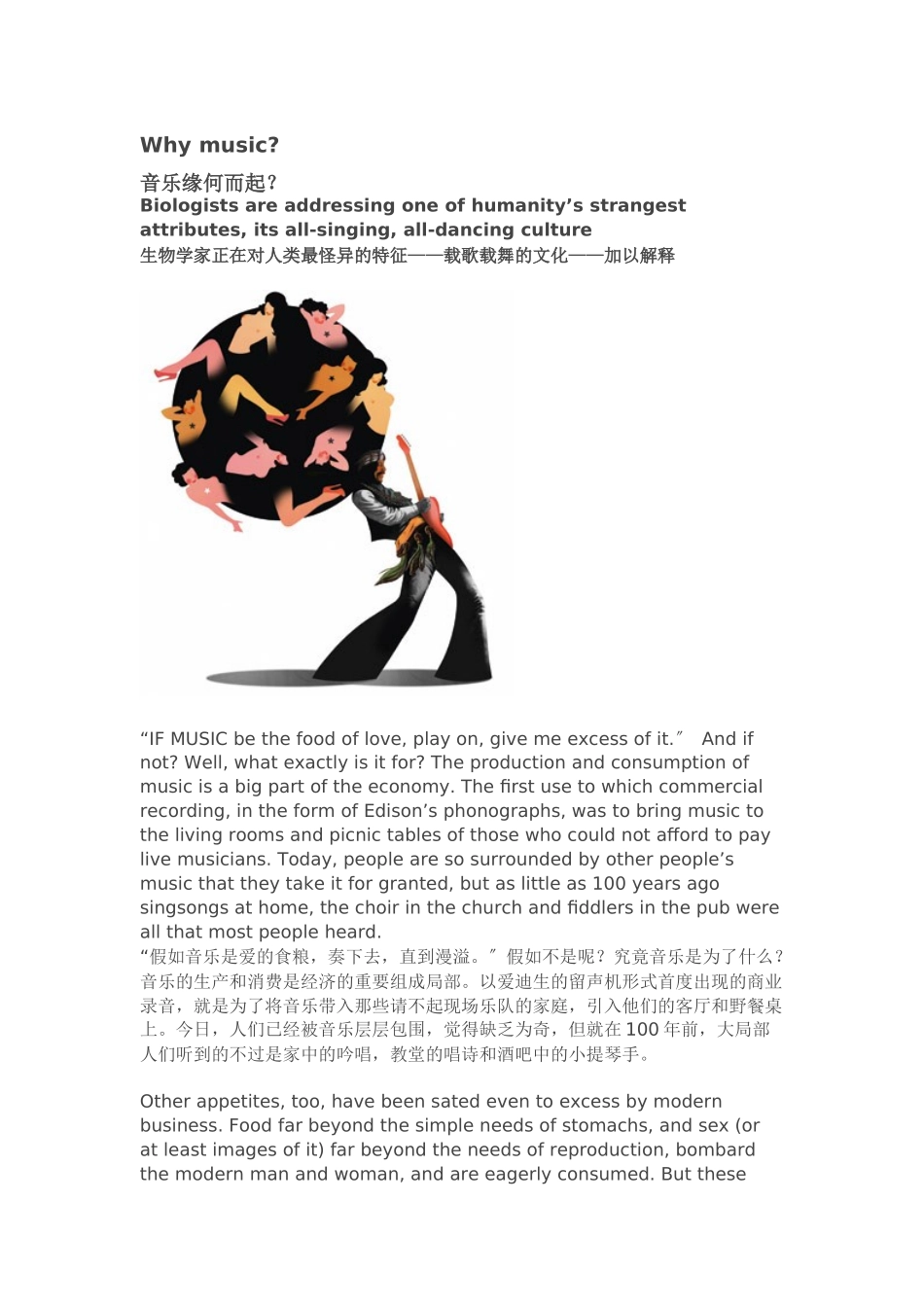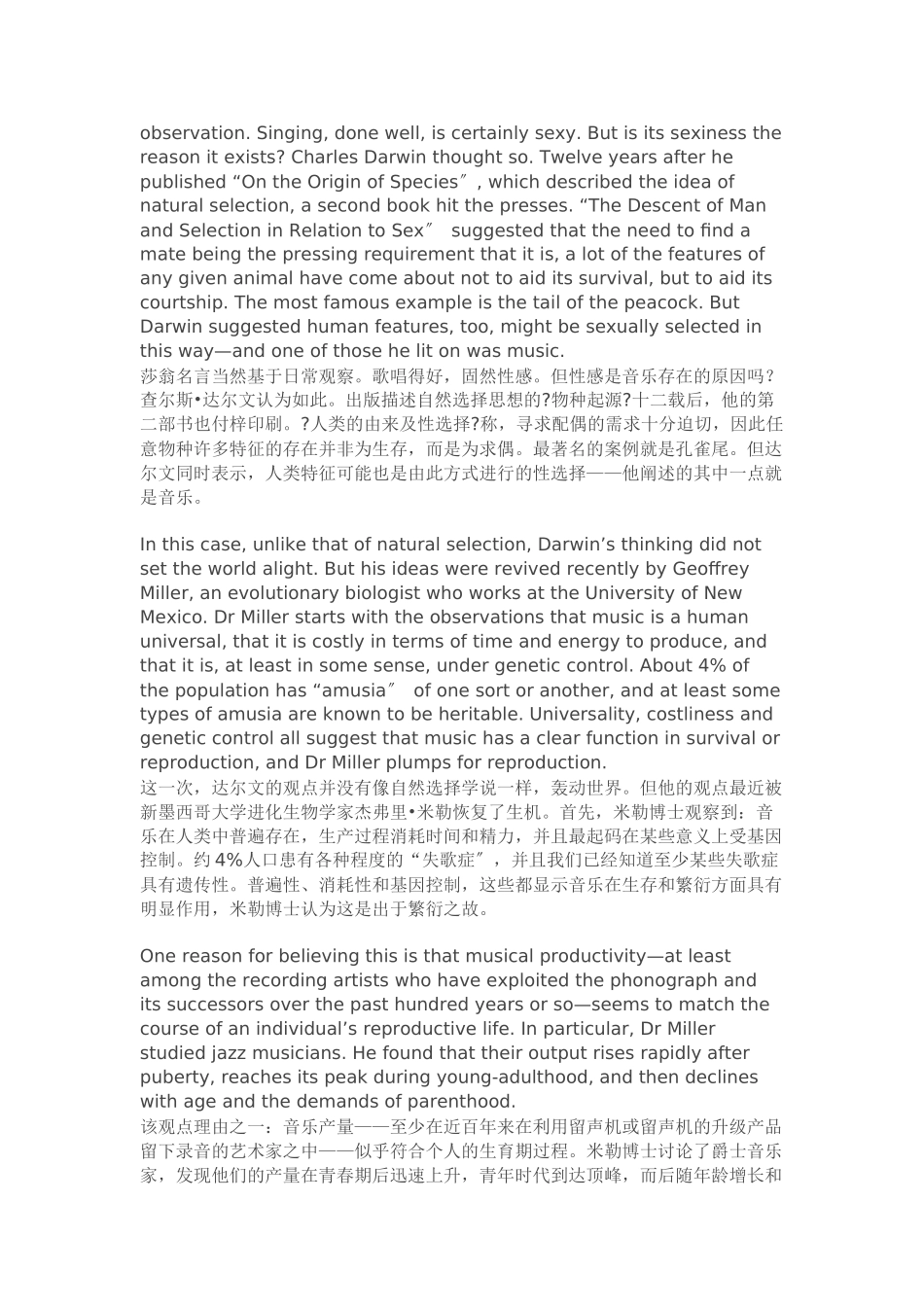Why music?音乐缘何而起?Biologists are addressing one of humanity’s strangest attributes, its all-singing, all-dancing culture生物学家正在对人类最怪异的特征——载歌载舞的文化——加以解释“IF MUSIC be the food of love, play on, give me excess of it.〞 And if not? Well, what exactly is it for? The production and consumption of music is a big part of the economy. The first use to which commercial recording, in the form of Edison’s phonographs, was to bring music to the living rooms and picnic tables of those who could not afford to pay live musicians. Today, people are so surrounded by other people’s music that they take it for granted, but as little as 100 years ago singsongs at home, the choir in the church and fiddlers in the pub were all that most people heard.“假如音乐是爱的食粮,奏下去,直到漫溢。〞假如不是呢?究竟音乐是为了什么?音乐的生产和消费是经济的重要组成局部。以爱迪生的留声机形式首度出现的商业录音,就是为了将音乐带入那些请不起现场乐队的家庭,引入他们的客厅和野餐桌上。今日,人们已经被音乐层层包围,觉得缺乏为奇,但就在 100 年前,大局部人们听到的不过是家中的吟唱,教堂的唱诗和酒吧中的小提琴手。Other appetites, too, have been sated even to excess by modern business. Food far beyond the simple needs of stomachs, and sex (or at least images of it) far beyond the needs of reproduction, bombard the modern man and woman, and are eagerly consumed. But these excesses are built on obvious appetites. What appetite drives the proliferation of music to the point where the average American teenager spends 1½-2½ hours a day—an eighth of his waking life—listening to it?其他欲望也和音乐一样,在现代商业的作用下甚至开展到闲赘。食物远非仅仅填饱肚子,性〔至少是与性有关的画面〕远非仅为繁衍,它们都像炮弹一样轰炸着现代人的头脑,还十分畅销。不过这些过度消费建立于显而易见的...


